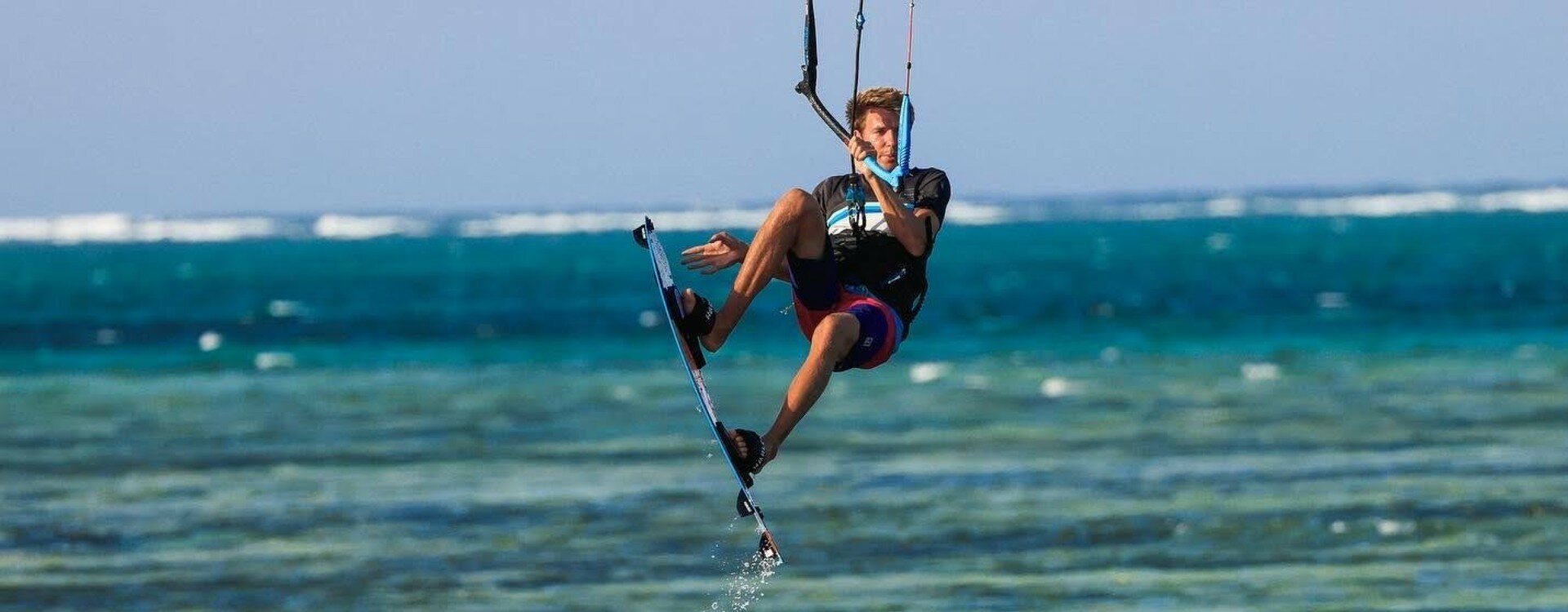Try the new IKO website at https://beta.ikointl.com/

An Interview with IKO Examiner and Kitesurf Instructor Felix Fleischer
Felix Fleischer is the newest IKO Examiner. We met up with him to talk about his kitesurf career and his journey through the IKO pro training path.
How did you get into kitesurfing?
The first time I saw kiteboarding was during a university project in South Africa close to Durban. I can't remember whether or not I had seen it on TV before, but I do remember that I was driving along the coast and saw these kites moving around for the first time in real life. Amazing! I stopped the car and watched them for a few minutes. I got back in the car and drove down to the beach and asked where I can buy “a set of these”. One of the guys pointed me to a local surfshop and I literally spent all my travel money and a bit of my savings on a complete set of kites. I started kiting on the same day!
Tell us about your favorite kite spot or kite experience.
It’s really hard to choose a favourite spot. Traveling around and visiting many different countries and spots is one of the things I enjoy most about the sport. But, if I had to pick I’d say that my two favourite spots are in Australia. Botany Bay in Sydney - mostly for the fact that it is really convenient because it is right in the city - and not too far off is Cronulla that has some awesome waves for when you’re tired of the flat water. Another spot I like is around Perth in Western Australia and I have to be honest it’s purely for the reason that there is literally no one else around. The wind is very consistent and you’ve got the whole place to yourself - there is really not much else to do, but surf.

Why did you decide to pursue kitesurfing professionally?
It wasn’t as much a deliberate decision as an opportunity that presented itself. When I moved to China for my university studies I went down to a local kite school every day after class to wait for the wind to pick up. I have done a lot of self rescues with my raceboard during that time because quite often the wind wasn't strong enough yet or just died altogether for the afternoon, but hey - better that than missing 5 minutes of good wind ;-) One day the owner asked me if I could help him teach a class to one of the customers and I did. It worked out really well for everyone and after a couple of weeks I did my Instructor Training Course (ITC) and got my IKO Instructor certification. I started to really like teaching and found the work quite varied. I guess what I liked most were the conversations I had with my students and I learned a lot about all kinds of people and their backgrounds and ways of thinking. I saved the money I made and was able to almost completely fund myself through university with kiteboarding.
Why did you become an IKO Examiner?
This time it was definitely a more deliberate choice. After I finished university I did what a good business graduate would do and got myself a job in management consulting. The job was okay, well paid, and to an extent also interesting - but I didn’t enjoy it. Teaching someone to kiteboard is much more rewarding. And teaching someone how to teach someone else is an even greater challenge and reward. And that’s one of the reasons why I started kiteboarding in the first place, I like the challenge. The next challenge will be to do ITCs in China, which is another reason that I applied for the Examiner training.

How has your kitesurf career affected your life?
There are so many facets to this question and I don’t even know where to start. I have learned more from teaching kiteboarding than I have learned during my entire time in school, university and the various other jobs I have done so far - combined. All kinds of people are doing kite lessons for all kinds of reasons. As an instructor you get to meet all of them and talk about a wide variety of topics and viewpoints. It’s a real mind opener! If you want to do a good lesson you will have to adapt to all these people and understand how to approach their individual lesson and progression. You have to manage their emotions when they fail or succeed - again - manage the emotions of a person that you have just met! When teaching, no matter if it’s a lesson or an ITC, you have to further adapt with lightning speed to when conditions change. Another aspect of the job is reacting quickly in tricky situations. As an instructor you obviously can’t freak out if something unexpected happens during a lesson but instead you have to react and give your student the impression that everything is under control. There are so many things that the instructor job teaches you about your own character and the people around you it’s scary to imagine my life without it.
What advice would you give to your colleagues?
Advise may be a little hard to give, but maybe I can finish off with something that helped me a lot. Try to find connections in everything you do. Try to relate the things that you do and see to another and find out how they interact or influence eachother. What did you learn during your time as an instructor and how can you use that knowledge and apply it in another aspect of life. What did you learn from a book or somewhere else and how can you apply that to your teaching. Connect the dots to get the whole picture.
.png)

